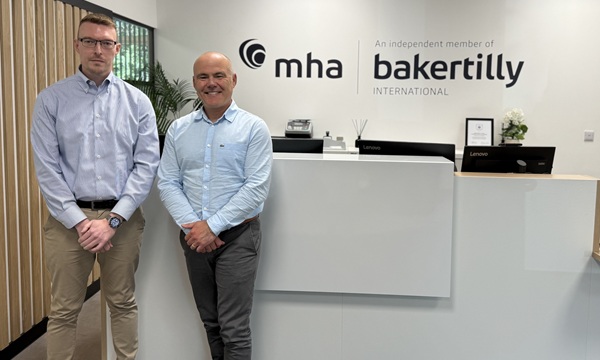Advisers are warning that business owners must remain realistic about valuations and post-sale expectations if they want to secure a successful M&A deal.
The outlook for mergers and acquisitions (M&A) in 2025 remains broadly positive, with opportunities emerging across several sectors, according to MHA’s latest Corporate Finance International Transactions Report and Forecast.
Speaking on the MHA Podcast – Trusted Insights, Strategic Advantage, Andrew Feeke, Head of Corporate Finance at MHA, said:
“I am feeling pretty confident about what this year might hold. There is actually a lot of opportunity from an M&A perspective to drive transactions and drive deal value.”
Feeke pointed to a strong pipeline of funding and private equity liquidity, as well as a relatively stable UK economic backdrop, despite wider geopolitical turbulence. He noted that while the impact of the Trump administration in the US was creating uncertainty, particularly around international assets, overall business confidence in the UK was “okay”.
“There is a lot of liquidity,” he said.
“Private equity will struggle to deploy all of the capital they have brought in, which is great for people like me who are trying to find and shape deals.”
Key sectors expected to drive activity in 2025 include technology, media and telecommunications (TMT), energy transition, healthcare, and industrials. Feeke said high-quality assets would continue to attract premium valuations, particularly in areas aligned with sustainability and automation trends.
However, while activity levels are expected to be strong, MHA Consultant Tax Partner Leighton Reed urged sellers, particularly SMEs, to take a pragmatic view when preparing for sale.
“Traditionally, SME family-owned businesses have tended to overvalue their business,” said Reed.
“It can be a challenge then when they are looking for a sale because the buyer will not meet their price aspirations. Sellers need to be realistic about price and realistic about the fact that they are likely to need to remain within the business, but in a very different capacity.”
Reed also highlighted that sellers must prepare for the emotional shift from business owner to employee, particularly when engaging with private equity buyers.
“As a seller, you are going from an owner to becoming an employee, and that is a difficult transition,” he said.
Both Feeke and Reed stressed that wider factors such as changes to tax policy and regulatory frameworks would also continue to influence M&A activity. Reed pointed to the UK’s competitive tax incentives for research and development and capital investment as positive factors but warned that further changes, particularly around business property relief, could trigger sales among long-standing family businesses.
“There are enough drivers going on in the economy at the moment that are going to overcome some of the uncertainties, particularly at the SME and mid-market sales level,” said Feeke.










